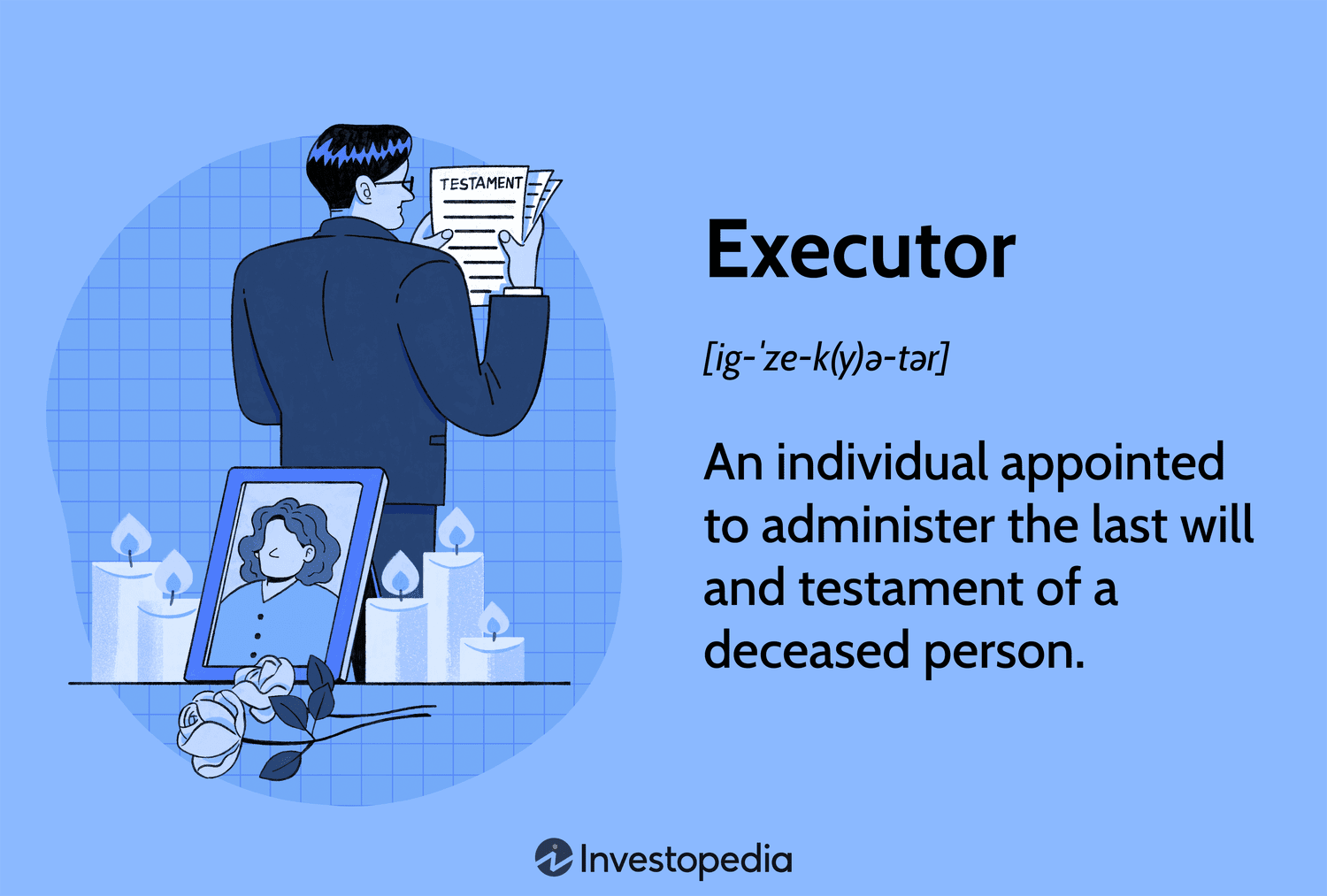Understanding the Role of an Executor in Estate Management
When a person passes away, their assets, debts, and overall estate need to be managed properly. The individual appointed to handle this responsibility is known as an executor. The executor holds a vital role in ensuring that the deceased's wishes are followed accurately and that all legal obligations relating to the estate are fulfilled. Managing an estate is a multifaceted process that includes filing the will with the probate court, inventorying property, paying debts, and keeping meticulous records for heirs and creditors.
The Duties and Responsibilities of an Executor
An executor acts as the legal representative of the deceased’s estate and carries the heavy responsibility of administering the estate according to the terms of the will and applicable laws. Failure to perform these duties with due diligence can result in personal liability for the executor. It is crucial to understand each task thoroughly before proceeding.
Filing the Will in Probate Court
One of the first steps an executor must take is to officially file the deceased’s will with the probate court. Probate is the legal process through which a will is validated and the court supervises the administration of the estate. The probate court confirms the validity of the will and grants the executor the authority to settle the estate. This step is essential to ensure the legitimacy of the executor’s actions and to protect the interests of the heirs.
Inventorying All Property
After filing the will, the executor must carefully take inventory of all assets belonging to the deceased. This comprehensive list, often required by the probate court, includes real estate, bank accounts, personal belongings, investments, and any other property the deceased owned. Proper documentation is vital to ensure that all assets are accounted for and to establish an accurate basis for distribution to the beneficiaries.
Paying Debts and Obligations
Another critical duty of the executor is to identify and pay off any outstanding debts or financial obligations of the deceased. This includes mortgages, credit card bills, loans, taxes, and other liabilities. The executor must use estate funds to satisfy these debts before distributing the remaining assets to the heirs. This process protects both the estate and the beneficiaries from future claims by creditors.
Maintaining Accurate Records for Heirs and Creditors
Throughout the administration of the estate, the executor should maintain detailed records of all transactions, payments, and distributions. These records serve as proof of the executor’s stewardship and provide transparency for both heirs and creditors. Keeping clear documentation helps resolve any conflicts or disputes regarding the handling of the estate and ensures compliance with legal requirements.
Risks and Potential Liabilities for Executors
Being an executor requires honesty, attention to detail, and an understanding of legal responsibilities. Mistakes or negligence may lead to personal liability, where the executor can be held financially accountable for losses or damages resulting from improper management. This includes mishandling funds, failing to pay debts, or distributing assets contrary to the will’s instructions. Therefore, it is imperative for executors to proceed with caution and seek professional legal advice when necessary.
Importance of Seeking Proper Legal Assistance
Managing an estate can be complex and overwhelming, particularly for individuals unfamiliar with probate law. To safeguard their interests and comply with legal obligations, executors should consider obtaining qualified legal counsel. Expert assistance can guide executors through procedures, help avoid costly errors, and ensure the estate is administered efficiently and fairly.
Conclusion and Contact Information
If you are appointed as an executor or are involved in estate administration, it is crucial to understand the scope of your duties and the importance of proper estate management. Mistakes can have serious consequences, but with careful planning and expert support, the process can be handled smoothly.
Executor duties are complex and bear significant responsibilities, including filing the will with probate court, taking an inventory of assets, paying debts, and maintaining detailed records. These tasks safeguard the deceased’s legacy and protect the rights of heirs and creditors. To minimize risks and ensure compliance, seeking appropriate legal assistance is highly recommended.
Legal Marketplace CONSULTANT specializes in providing comprehensive legal services to businesses and individuals, focusing on estate planning and administration. Our team includes experienced attorneys ready to assist executors with all aspects of estate management to ensure a smooth and lawful process.
For proper legal help regarding executor duties, please reach out through the communication options provided in our bio or send a private message for confidential advice and support.
Detailed Guide to the Executor’s Role
Understanding the executor’s role in depth helps to appreciate the complexities involved in estate administration. This guide provides a more comprehensive overview of responsibilities and best practices for executors looking to fulfill their duties responsibly and effectively.
1. Filing the Will and Opening Probate
The executor must file the deceased’s will and a petition to open probate within the time frame specified by state law, typically within a few months after the person’s death. The probate court will formally recognize the executor and grant legal authority to manage the estate. This process may involve court hearings, notification of heirs, and publication of notices to creditors.
2. Locating and Securing Estate Assets
Once probate begins, the executor should locate all estate assets and secure them to prevent loss or damage. This may involve changing locks on a property, securing valuables in a safe location, and notifying financial institutions of the death. Comprehensive estate management begins with a clear understanding of what assets exist and their approximate value.
3. Notifying Beneficiaries and Creditors
The executor is responsible for informing all beneficiaries named in the will about the probate process and estimated timelines. Additionally, creditors must be notified so they can make claims against the estate for any unpaid debts. Official notices might be required to be published in newspapers or sent directly to known creditors.
4. Valuing the Estate
Accurate valuation of all estate assets is essential for tax purposes and equitable distribution. The executor may need to hire professional appraisers for real estate, collectibles, or business interests. Proper valuation ensures compliance with tax authorities and helps resolve possible disputes among heirs.
5. Paying Debts, Taxes, and Expenses
Before assets can be distributed, the executor must pay all valid debts and necessary expenses related to the estate, including funeral costs, administration fees, and taxes. Timely payment of these obligations protects the estate from penalties and legal challenges.
6. Managing Estate Investments
If the estate includes investment accounts or business interests, the executor must responsibly manage these assets until distribution. This could involve ongoing administration like collecting dividends, paying bills, or making decisions regarding the sale of assets to fund debt payments or distributions.
7. Distributing Estate Assets to Heirs
After debts and expenses are settled, the executor distributes the remaining assets according to the will’s instructions. This step requires careful adherence to the terms set forth by the deceased and can involve dividing property among multiple beneficiaries, transferring titles, or liquidating assets.
8. Closing the Estate
Once distributions are completed and all accounting is finalized, the executor petitions the probate court to close the estate. Formal closure ends the executor’s legal responsibilities, but comprehensive records should be retained for possible future reference or audits.
Common Challenges Executors Face
Serving as an executor is often challenging due to the emotional nature of the role combined with complex legal and financial considerations. Executors may face difficulties such as disputes among heirs, unclear or contested wills, creditor claims, and the burden of tax obligations. Knowing potential pitfalls can help executors prepare properly and seek advice when needed.
How to Avoid Personal Liability
To limit the risk of personal liability, executors should approach their duties with professionalism and caution. Key steps include:
- Documenting all decisions and actions in detail;
- Seeking advice from qualified legal and financial professionals;
- Communicating openly with heirs and creditors;
- Following the exact instructions laid out in the will;
- Timely executing all aspects of estate administration.
When to Consult a Probate Lawyer
Executors should consider consulting a probate attorney in situations such as:
- Disputes over the validity of the will;
- Complex or sizable estates with multiple assets;
- Questions about tax filings or debt liabilities;
- Conflicts among beneficiaries;
- Uncertainty regarding proper legal procedures.
Summary
The role of an executor is crucial in ensuring the deceased’s wishes are honored and assets are distributed fairly while debts are paid promptly. Managing an estate involves numerous steps, from court filings to asset valuation and distribution. Proper care, thorough record-keeping, and legal support are the best ways to fulfill this important duty responsibly.
The duties and responsibilities of an executor are demanding but essential for the successful administration of an estate. Understanding each step, maintaining clear records, and seeking expert legal help when needed can prevent personal liability and facilitate a smooth probate process. For 2025 and beyond, being informed and prepared is key to serving effectively as an executor.
Legal Marketplace CONSULTANT — a trusted partner providing expert legal guidance tailored to estate administration and executor services. Contact us via communications in bio or send a private message for dedicated assistance.































